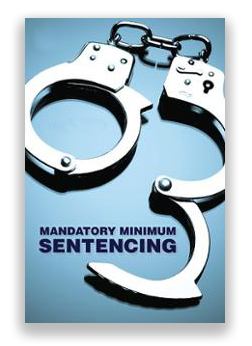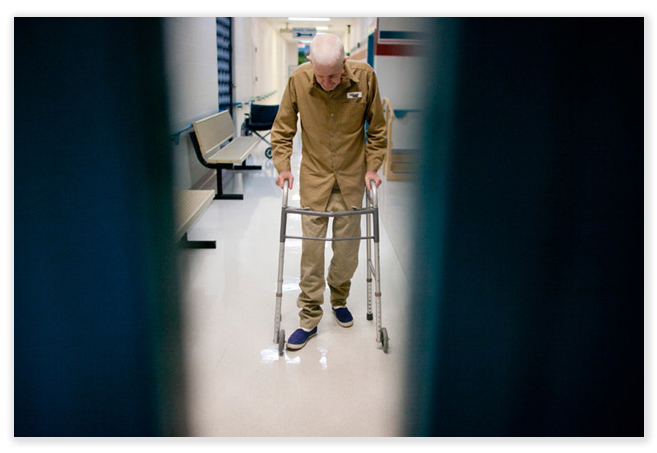We post news and comment on federal criminal justice issues, focused primarily on trial and post-conviction matters, legislative initiatives, and sentencing issues.

NO GOOD NEWS ON CRIMINAL JUSTICE REFORM
 Democratic and Republican negotiators in the Senate last Wednesday called off talks aimed at overhauling police tactics and accountability, with the lawmakers unable to reach a compromise in the wake of nationwide protests sparked by the killings of Black Americans by law-enforcement officers.
Democratic and Republican negotiators in the Senate last Wednesday called off talks aimed at overhauling police tactics and accountability, with the lawmakers unable to reach a compromise in the wake of nationwide protests sparked by the killings of Black Americans by law-enforcement officers.
Sen. Cory Booker (D-NJ) said, “In the end we couldn’t do it, if you just take some of those issues of transparency, professional standards and accountability, we couldn’t get there.”
The implications for criminal justice reform are significant. If the two parties can’t get together on reforms most everyone believes are needed, other reform measures could be stillborn. Last week, Sen Charles Grassley (R-Iowa) – one of the two sponsors of the First Step Act – said that the EQUAL Act, which will reduce penalties for crack to match those for powder cocaine, doesn’t have enough support in the Senate to pass. Attempting to eliminate the disparity, Grassley said last week, would jeopardize the likelihood he and Sen. Richard Durbin (D-Illinois) can get the 60 votes needed to bring the justice reform bills to the floor. Among Republican colleagues, it’s a non-starter, he said.
 “Does that mean that there’s not some possibility for compromise? I would be open to that, but I’m going to have to get enough Republicans to go along to make sure we don’t scuttle the other good provisions we have,” Grassley said.
“Does that mean that there’s not some possibility for compromise? I would be open to that, but I’m going to have to get enough Republicans to go along to make sure we don’t scuttle the other good provisions we have,” Grassley said.
Although optimistic about prospects for his justice reforms, such as the First Step Implementation Act and the COVID-19 Safer Detention Act, Grassley acknowledged the looming challenge is “dealing with all the other things that are on the agenda right now and have been all year.” He anticipates Democratic Senate Majority Leader Chuck Schumer (D-NY) will give Durbin and him time to debate and pass their package this fall. “But with the progress of negotiations and floor time and all the other stuff that’s in the news more often than this is, I think it could be delayed into 2022,” Grassley said.
Grassley’s realistic appraisal is in stark contrast to the hopeful tone in yesterday’s New York Daily News. William Underwood, whose life sentence was cut by compassionate release and who now works with The Sentencing Project, wrote that while “bipartisanship on Capitol Hill is in short supply these days, these bills can pass the Senate with broad support from both parties. Passing these two bills would acknowledge that each and every one of us, when given the opportunity, can be better than the worst thing we have ever done.”
 One piece of hopeful news came last week with the House of Representatives passing the National Defense Authorization Act. Tucked into that bill were provisions of the SAFE Banking Act, which would protect banks by prohibiting regulatory actions to keep them from servicing legitimate marijuana businesses. Passage suggests that action to normalize the sale and use of marijuana may continue, and lead to retroactive changes in federal criminal pot laws.
One piece of hopeful news came last week with the House of Representatives passing the National Defense Authorization Act. Tucked into that bill were provisions of the SAFE Banking Act, which would protect banks by prohibiting regulatory actions to keep them from servicing legitimate marijuana businesses. Passage suggests that action to normalize the sale and use of marijuana may continue, and lead to retroactive changes in federal criminal pot laws.
Wall Street Journal, Bipartisan Police-Overhaul Talks End With No Deal (September 22, 2021)
Sioux City Journal, Grassley skeptical of GOP support for cocaine penalty reforms (September 20, 2021)
Marketwatch, House includes cannabis banking measure in defense bill (September 22, 2021)
New York Daily News, Bend Open the Prison Bars (September 26, 2021)
– Thomas L. Root


























